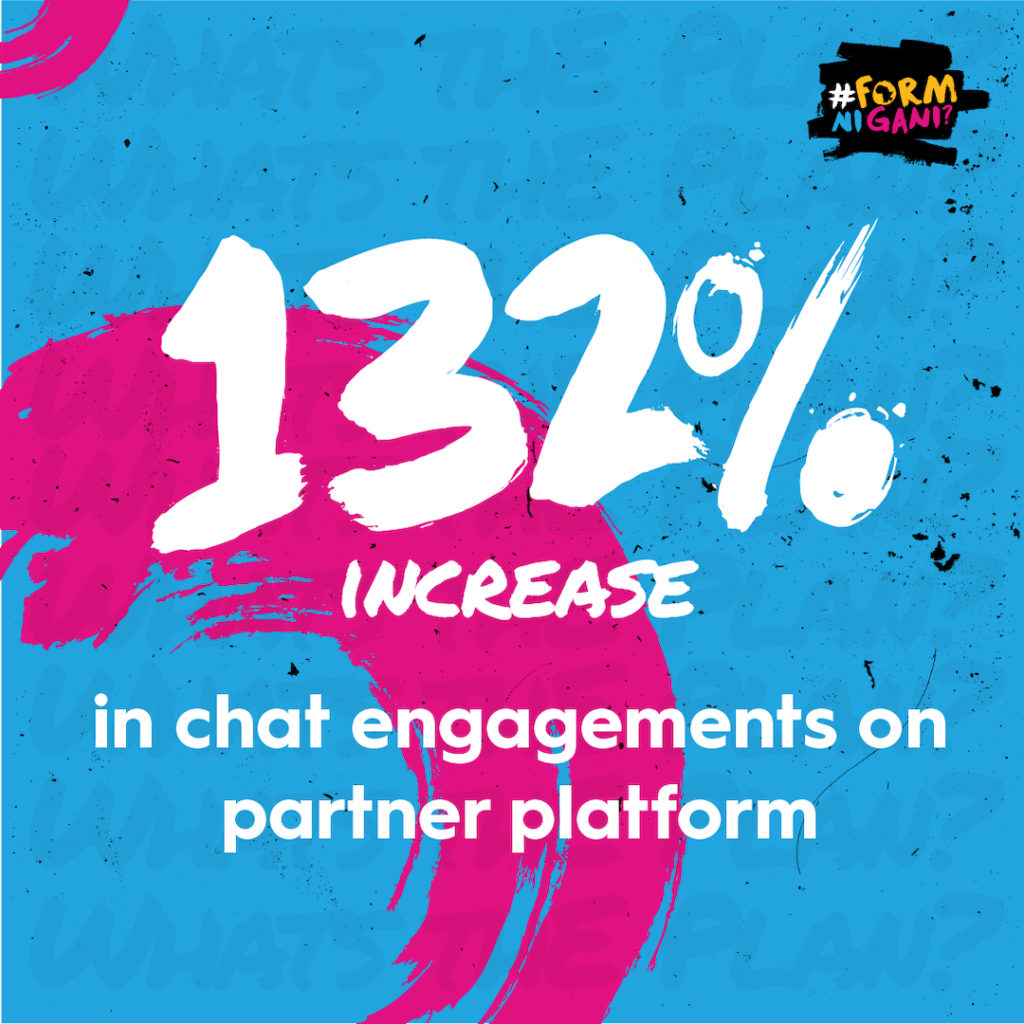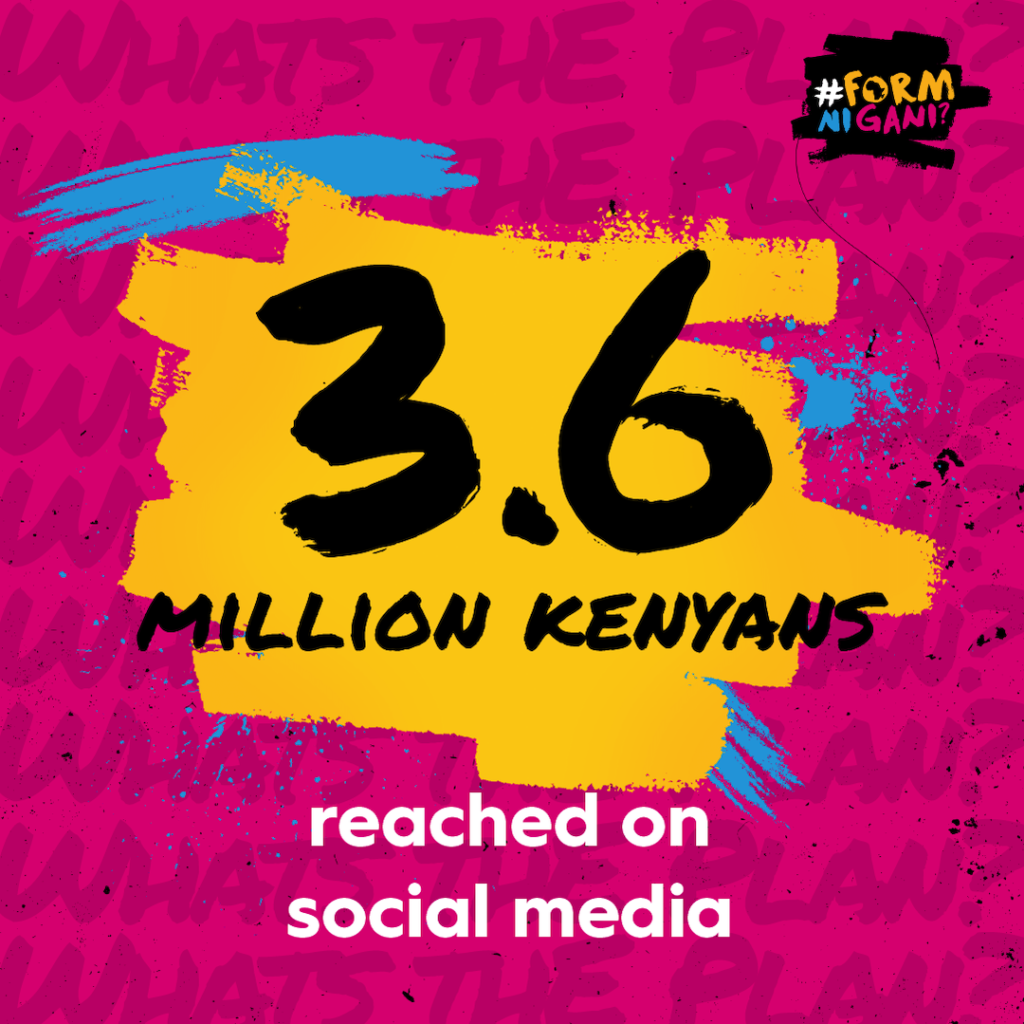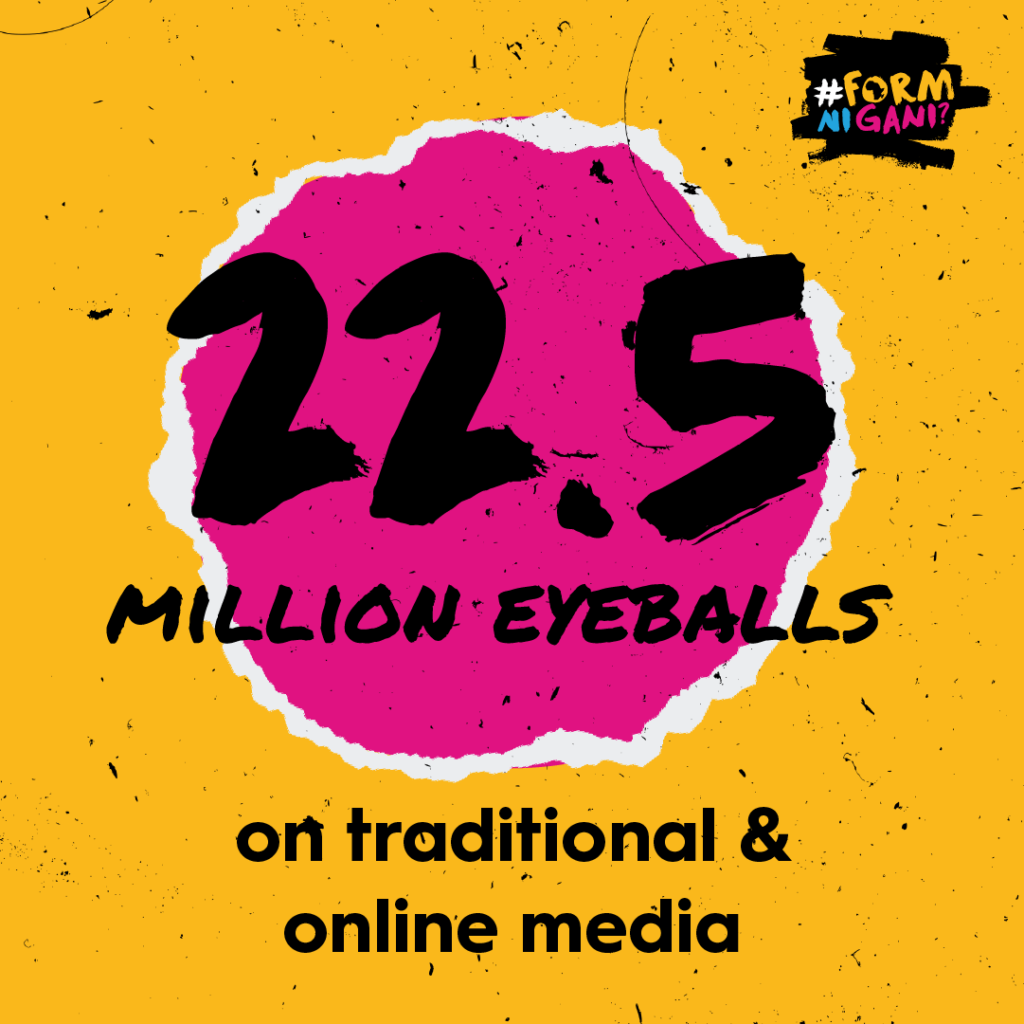Driving demand for reproductive health self-care in Kenya
For the past five years, the #FormNiGani movement has advocated for young people’s family planning rights in Kenya. The movement’s latest #FormNiKujijali campaign was created to drive impact through reproductive health self-care.
Adopting self-care practices allows young Kenyans to take agency over their health while supporting healthcare workers in a strained health system. At the same time, self-care provides a new lens in approaching policy on healthcare, moving the needle on universal health coverage.
#FormNiKujijali, meaning “the plan is self-care” in Sheng slang, tapped into reproductive health self-care’s unharnessed potential, familiarising millions of Kenyans with the concept.
#FormNiKujijali campaign’s 3Cs model
To address prior identified opportunities and counter existing barriers to young people’s sexual and reproductive health journey, we coined an innovative 3Cs strategy to shape their knowledge of and access to reproductive health self-care. The strategy relied on driving demand simultaneously on several fronts to capture young people’s attention through the platforms and content they most often consume.
The 3Cs strategy components are:
- Creative communications to create youth-centric messaging on contraceptive self-care that taps into peer-to-peer information networks
- Channel interventions to explore alternative, innovative pathways with health system actors to meet young people’s sexual and reproductive health needs
- Collaboration with health system actors to offer complementary services from information and counselling to product access and post-purchase support
Campaign results reveal untapped potential
The first arm of #FormNiKujijali’s 3Cs strategy approached young people through influencer engagement. Youth advocates and thought leaders engaged with their audiences by sharing the campaign’s reproductive health self-care messaging. Throughout the six-week campaign, #FormNiKujijali reached over 3,6 million Kenyans on social media.
At the same time, we launched a news media advocacy campaign to inject contraceptive self-care into public discussions. We targeted decision-makers and the wider public through opinion pieces, news segments, and podcasts. The media outreach captured 22,5 million eyeballs nationwide.
Lastly, the campaign generated demand for reproductive health self-care services and counselling through a WhatsApp-based chat platform operated by Reproductive Health Network Kenya, with signposting driven by influencers. During the campaign, the platform experienced a 132 per cent increase in chat engagements from the average level.
The positive response to #FormNiKujijali’s concept and approach provides evidence of the demand for reproductive health self-care. The findings present ample potential for scaling the campaign to larger audiences and replication in different contexts to sustain the momentum to improve the adoption of self-care practices in sexual and reproductive health.
Read the #FormNiGani Strategy Navigator report
Keep up to date by following #FormNiGani on Twitter, Facebook, and Instagram.



